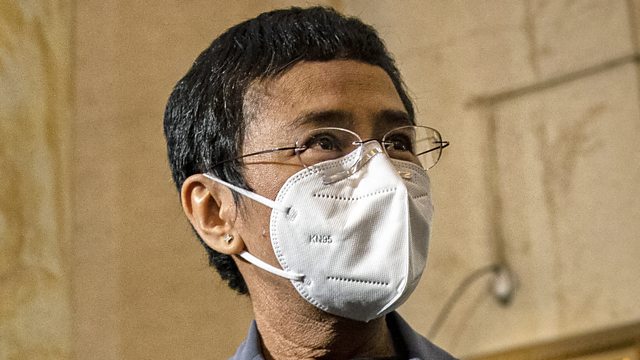Press Freedom in the Philippines
Stories from Spain, Kyrgyzstan, Papua New Guinea, Sweden and on a court case that's seen as a threat to freedom of the press in the Philippines. With Kate Adie.
In the Philippines two journalists, Maria Ressa, the head of an investigative news website called Rappler, and one of their former writers, Reynaldo Santos Jr, have been sentenced to prison for libel, in a case that many see as an attack on freedom of the press, and on critics of the government, as Howard Johnson reports.
In Spain, healthcare workers, from doctors and nurses to hospital porters, were badly affected by the coronavirus, making up twenty percent of confirmed cases. Ed Habershon was there during the peak of the crisis.
Ten years ago ethnic clashes broke out in the city of Osh in Kyrgyzstan, when Kyrgyz residents turned on ethnic Uzbeks. Hundreds were killed, many more injured, around two thousand homes burnt down. The violence took place at a time of deep political instability in the country. For Rayhan Demytrie, an Uzbek herself, these were among the most horrific events of her journalistic career.
The island of Bougainville is in Papua New Guinea, but residents have voted overwhelmingly to secede and become independent. Key to its future economy is a former copper and gold mine. Its closure had contributed to civil war, so how do local people see its possible re-opening now, asks Mark Stratton.
The murder of the popular prime minister Olof Palme in 1986 shocked Sweden deeply, and left an open wound as the killer was never found despite decades of investigations. Conspiracy theories abounded. And then last week the Swedish authorities announced that they had identified the perpetrator, that he was dead, and that they were therefore closing the case. But how convinced is the Swedish public that the true culprit has been found, asks Maddy Savage.
Presenter: Kate Adie
Producer: Arlene Gregorius
Last on
More episodes
Broadcast
- Thu 18 Jun 2020 11:00大象传媒 Radio 4

